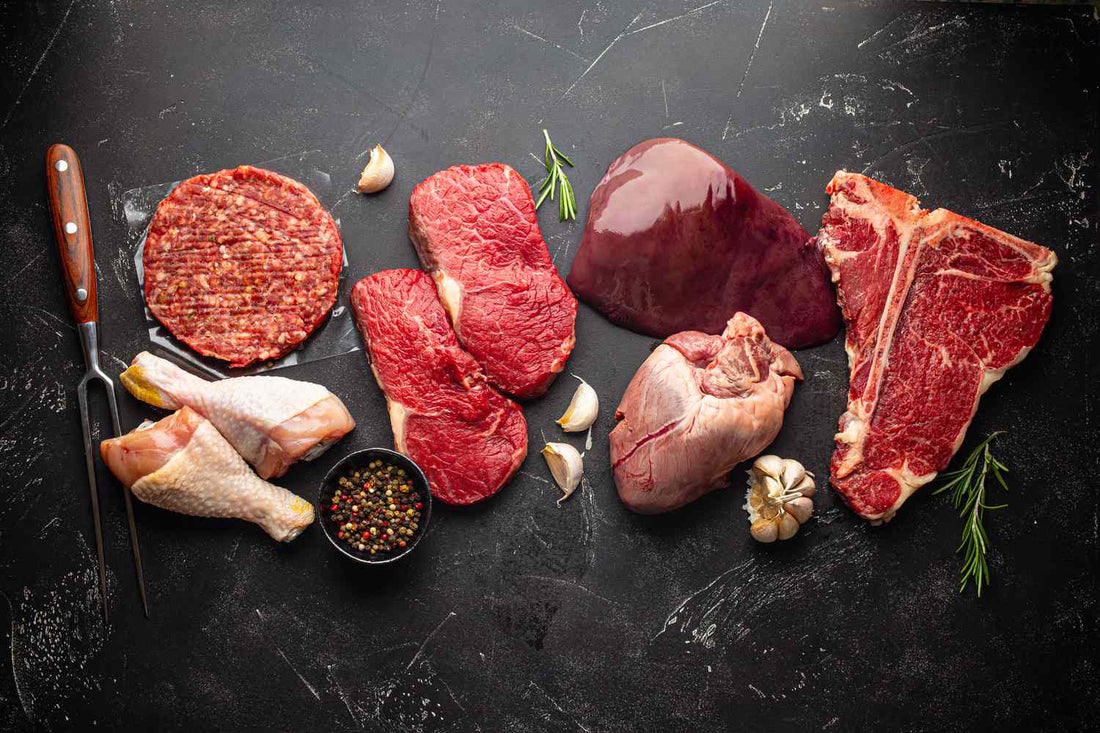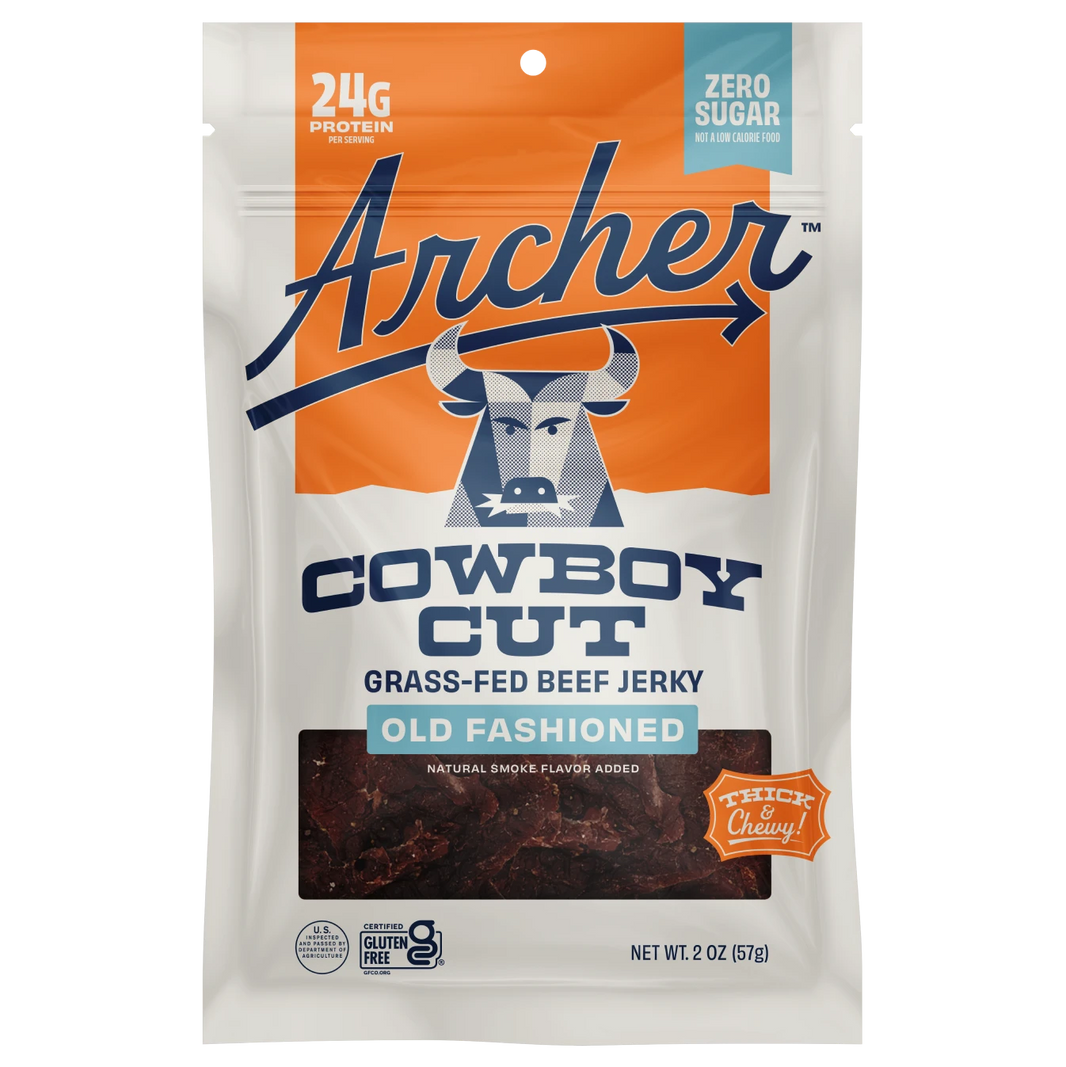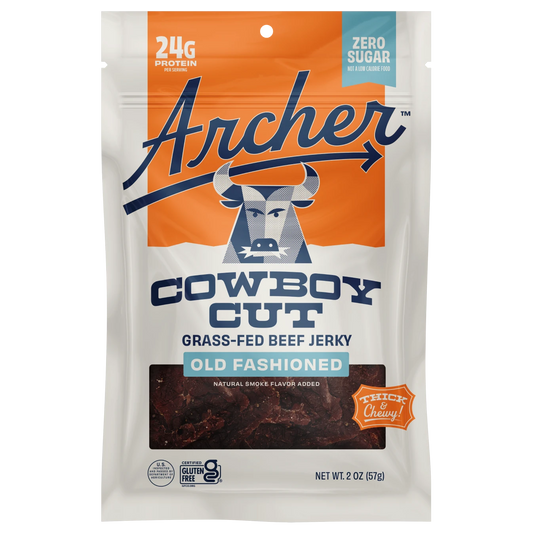

Carnivore Diet vs Keto: Which is Best for You?
Share
The Carnivore Diet and the Keto Diet have gained immense popularity in recent years, each boasting unique health benefits and devoted followers. The Carnivore Diet focuses exclusively on animal-based foods, while the Keto Diet emphasizes low-carb, high-fat foods to promote ketosis. This article delves into the intricacies of both diets, comparing their benefits, potential drawbacks, and suitability for various lifestyles, helping you determine which diet might be best for you. Explore our Zero Sugar meat snacks that are perfect for the Carnivore Diet and Keto Diet.
Understanding the Carnivore Diet
Definition and Basic Principles
The Carnivore Diet is an extreme form of a low-carb diet that exclusively involves consuming animal products. This includes meat, fish, eggs, and some dairy products. The primary principle is to eliminate all plant-based foods and focus solely on animal-derived nutrition.
Allowed and Restricted Foods
- Allowed: Beef, pork, chicken, fish, eggs, butter, and cheese.
- Restricted: Fruits, vegetables, grains, legumes, nuts, and seeds.
Health Benefits
- Weight Loss: The high protein content can lead to increased satiety, helping with weight management.
- Blood Sugar Control: Eliminating carbohydrates can stabilize blood sugar levels, beneficial for those with insulin resistance.
- Mental Clarity: Many report enhanced cognitive function and mental clarity.
- Inflammation Reduction: Some studies suggest a reduction in inflammation due to the elimination of inflammatory plant compounds.
Potential Drawbacks
- Nutritional Deficiencies: Lack of vitamins and minerals found in plant foods.
- Digestive Issues: Potential for constipation due to lack of fiber.
- Sustainability: Strict limitations can make it hard to maintain long-term.
- Social Challenges: Difficulty dining out and social eating scenarios.
Examples of Typical Meals
- Breakfast: Scrambled eggs with bacon.
- Lunch: Grilled steak with butter.
- Dinner: Salmon fillet with a side of hard cheese.
Understanding the Keto Diet
Definition and Basic Principles
The Keto Diet focuses on a high-fat, moderate-protein, and low-carbohydrate intake. By drastically reducing carbs and increasing fat, the body enters a metabolic state called ketosis, where it burns fat for energy instead of carbohydrates.
Allowed and Restricted Foods:
- Allowed: Meat, fish, eggs, dairy, nuts, seeds, low-carb vegetables, and healthy fats like avocado and olive oil.
- Restricted: Sugary foods, grains, high-carb vegetables, and most fruits.
Health Benefits
- Weight Loss: Effective in burning stored fat and reducing appetite.
- Blood Sugar Control: Can lower blood sugar and improve insulin sensitivity.
- Heart Health: May increase levels of good HDL cholesterol.
- Mental Clarity: Enhanced cognitive function and stable energy levels.
- Inflammation Reduction: Lowered inflammation due to reduced sugar intake.
Potential Drawbacks
- Nutritional Deficiencies: Risk of missing out on essential nutrients from high-carb fruits and vegetables.
- Digestive Issues: Initial constipation or diarrhea due to dietary changes.
- Keto Flu: Flu-like symptoms during the initial phase of ketosis.
- Sustainability: Can be challenging to maintain strict carb limits long-term.
- Social Challenges: Limited food choices in social settings.
Examples of Typical Meals
- Breakfast: Avocado and eggs cooked in coconut oil.
- Lunch: Grilled chicken salad with olive oil dressing.
- Dinner: Beef stir-fry with low-carb vegetables like broccoli and bell peppers.
Comparing Health Benefits
Weight Loss Potential
Both diets can lead to significant weight loss by promoting satiety and reducing overall calorie intake. The Carnivore Diet's high protein content keeps you full longer, while the Keto Diet's fat-burning ketosis state helps shed excess fat.
Effects on Blood Sugar and Insulin Levels
The Carnivore Diet eliminates all carbs, leading to stable blood sugar levels. The Keto Diet, by significantly reducing carb intake, also helps stabilize blood sugar and improve insulin sensitivity, making both diets suitable for managing diabetes.
Impact on Heart Health
The Keto Diet may improve heart health by increasing good HDL cholesterol and reducing bad LDL cholesterol. The Carnivore Diet's impact is less clear, with some concerns about high saturated fat intake potentially raising LDL cholesterol levels.
Benefits for Mental Clarity and Cognitive Function
Both diets can enhance mental clarity and cognitive function. The Carnivore Diet's elimination of plant toxins and the Keto Diet's stable energy from ketones contribute to improved brain function.
Influence on Inflammation and Autoimmune Conditions
Reducing carbohydrates can lower inflammation in both diets. The Carnivore Diet's elimination of all plant foods may benefit those with autoimmune conditions sensitive to plant compounds, while the Keto Diet reduces inflammation through its low-sugar approach.
Comparing Potential Drawbacks
Nutritional Deficiencies
Both diets risk nutritional deficiencies. The Carnivore Diet lacks vitamins C and E, fiber, and phytonutrients found in plants. The Keto Diet may miss certain micronutrients found in higher-carb fruits and vegetables.
Digestive Issues
The Carnivore Diet can cause constipation due to the lack of fiber. The Keto Diet may lead to digestive issues like constipation or diarrhea, particularly during the adaptation phase.
Sustainability and Lifestyle Considerations
The strictness of the Carnivore Diet makes it hard to sustain long-term. The Keto Diet, while also restrictive, offers more variety and flexibility, making it more sustainable for many people.
Social and Cultural Challenges
Both diets can pose social challenges, with limited food choices at social gatherings and dining out. The Carnivore Diet's restrictions are more pronounced, making it harder to adhere to in social situations.
Long-Term Health Effects
The long-term health effects of both diets are still under study. The Carnivore Diet's high saturated fat intake raises concerns, while the Keto Diet's long-term sustainability and health impacts need more research.
Choosing the Right Diet for You
Personal Health Goals
Identify your primary health goals, such as weight loss, improved blood sugar control, or enhanced mental clarity. The Carnivore Diet might be suitable for those seeking drastic dietary changes, while the Keto Diet offers a balanced approach with more variety.
Pre-existing Health Conditions
Consult your healthcare provider if you have pre-existing conditions like diabetes, heart disease, or digestive issues. Both diets can be beneficial but require careful management and monitoring.
Lifestyle and Preferences
Consider your lifestyle and food preferences. The Carnivore Diet's extreme restrictions may not fit everyone's lifestyle, while the Keto Diet's flexibility allows for more diverse meal options.
Consultation with Healthcare Professionals
Always consult healthcare professionals before starting any diet, especially if you have health conditions or take medications. Professional guidance ensures you meet your nutritional needs and manage any potential risks.
Practical Tips for Starting and Maintaining the Chosen Diet
- Start Slowly: Gradually transition to your chosen diet to minimize side effects.
- Meal Planning: Plan meals ahead to ensure a balanced intake of nutrients.
- Stay Hydrated: Drink plenty of water to aid digestion and overall health.
- Monitor Progress: Track your health markers and adjust your diet as needed.
- Seek Support: Join online communities or find a diet buddy for motivation and support.
Conclusion
Choosing between the Carnivore Diet and the Keto Diet depends on your health goals, lifestyle, and preferences. Both diets offer unique benefits and potential drawbacks, so it's essential to weigh these factors carefully. Consulting with healthcare professionals and considering your long-term sustainability can help you make an informed decision.
FAQs
- Can I combine the Carnivore Diet with the Keto Diet?
Yes, you can combine elements of both diets by focusing on animal-based foods while maintaining a state of ketosis through low-carb intake.
- How quickly can I expect to see results on these diets?
Results vary, but many people start noticing changes within a few weeks, including weight loss, improved energy levels, and better mental clarity.
- Are there any serious health risks associated with these diets?
Both diets can pose risks if not properly managed, such as nutritional deficiencies and digestive issues. It's important to consult a healthcare professional.
- Which diet is better for muscle gain?
Both diets can support muscle gain, but the high protein content of the Carnivore Diet may be more beneficial for building and maintaining muscle mass.
- How do these diets affect cholesterol levels?
The Keto Diet may improve cholesterol levels by increasing HDL and reducing LDL. The Carnivore Diet's impact varies and should be monitored closely.
- Can I follow these diets if I have diabetes?
Both diets can be beneficial for managing diabetes, but it's crucial to monitor blood sugar levels and work with a healthcare provider to adjust medications if needed.
- What are some common mistakes to avoid when starting these diets?
Avoid transitioning too quickly, neglecting to plan meals, not drinking enough water, and failing to monitor your health markers.
Country Archer Beef Jerky is the perfect high-protein snack for both Carnivores and Keto Dieters alike. With its all-natural ingredients and zero added sugars, it provides a convenient and delicious way to stay on track with your dietary goals. Whether you're on the go or need a quick protein boost, Country Archer Beef Jerky offers a satisfying and nutritious option that aligns with the principles of both the Carnivore and Keto diets.




